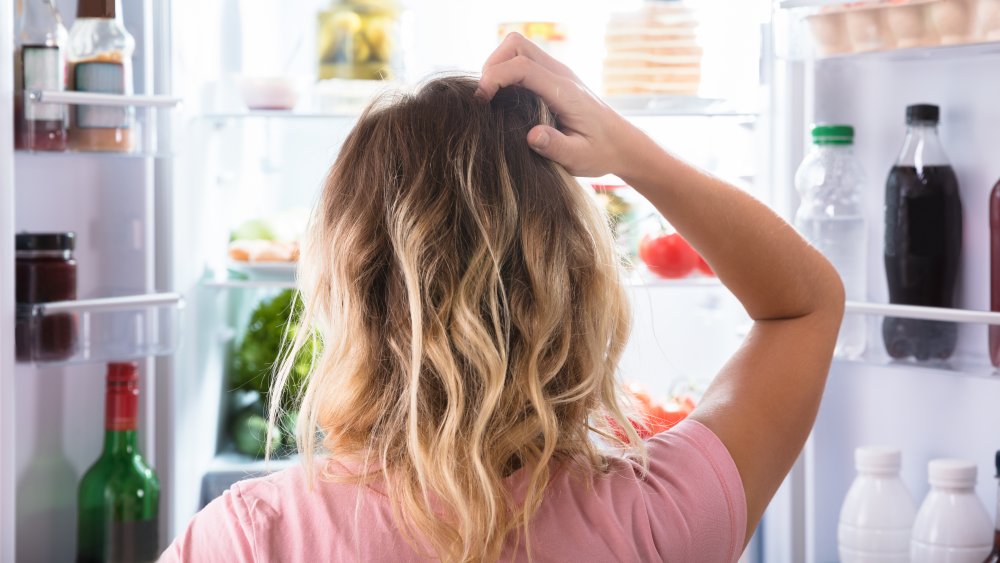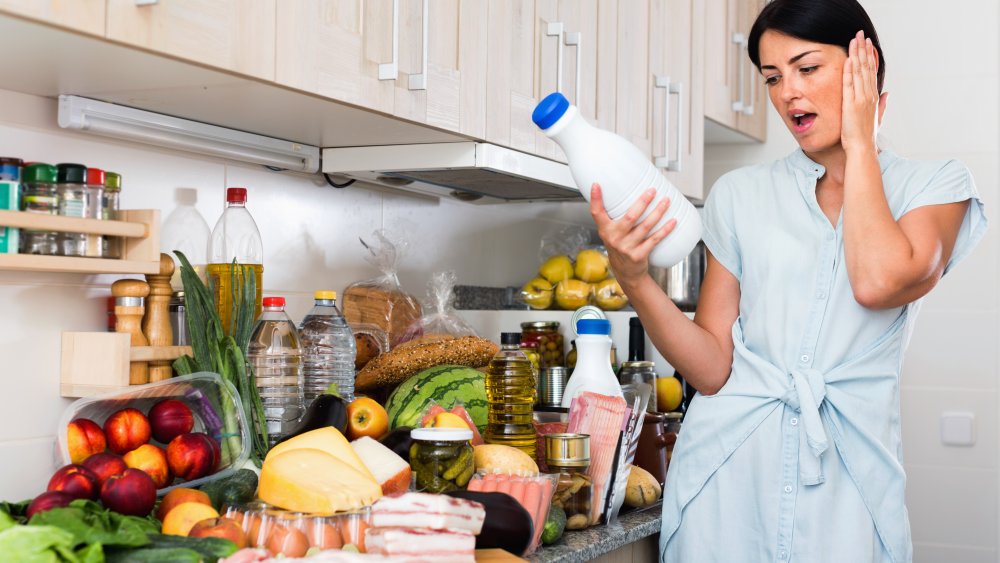Here's How To Know If Your Food Is Safe To Eat After A Power Outage
A lot of things go through your mind when your power goes out unexpectedly. Is your cell phone charged? Do you have a flashlight? And perhaps most importantly, will you have to throw out all of the fresh meat, cheese, and vegetables in your refrigerator? It's easy to be tempted to save the groceries in your fridge and freezer after a power outage — nobody wants to waste food. But, depending on how long the outage lasted, it may not be safe to do so. Food can spoil quicker than you might think and that can put you and your family at risk for food-borne illness.
The USDA says meat, fish, and poultry need to be kept at or below 40 degrees, and all frozen foods need to be kept at or below zero degrees. In a power outage, a refrigerator can keep food safely cold for about four hours, provided the door has been kept closed. A full freezer can stay cold enough to keep food safe for approximately 48 hours. If the freezer is only half full, though, that time limit drops to 24 hours. Keeping an appliance thermometer in your refrigerator and freezer at all times will help you determine the temperature at a glance.
It's important to note the reading on your freezer thermometer after the power comes back on as well. Frozen food is still safe and can be refrozen if the temperature inside the freezer remained below 40 degrees (via the FDA). A little planning can go a long way, too.
Plan for a power outage in advance
In certain circumstances, like a hurricane or a snowstorm, you may know when a potential power outage may be coming and have time to prepare. The FDA suggests freezing refrigerated items like leftovers, milk, and meat to help keep them at a safe temperature for longer. Keeping coolers on hand and packs of ice or gel packs in the freezer is also a good idea so you have a safe place to transfer your refrigerator food if your power is out beyond the four-hour mark. Just be sure to keep the coolers at or below 40 degrees, according to the CDC. They caution to never taste food in order to determine if it's gone bad. If you have any doubts, throw it out.
The USDA says perishable food should be discarded any time it has been kept above 40 degrees for two hours or more. According to Food Safety, this includes any refrigerated meat, poultry, or seafood (including processed meats, like lunch meat and hot dogs). Hard cheeses, like cheddar and parmesan, and processed cheeses are ok to keep, but soft cheeses, like Brie and mozzarella, should be discarded. Dairy and eggs also have to go, but uncut fruits and vegetables are fine to keep. Armed with this knowledge, you should be able to see your family and your groceries safely through your next power outage.

